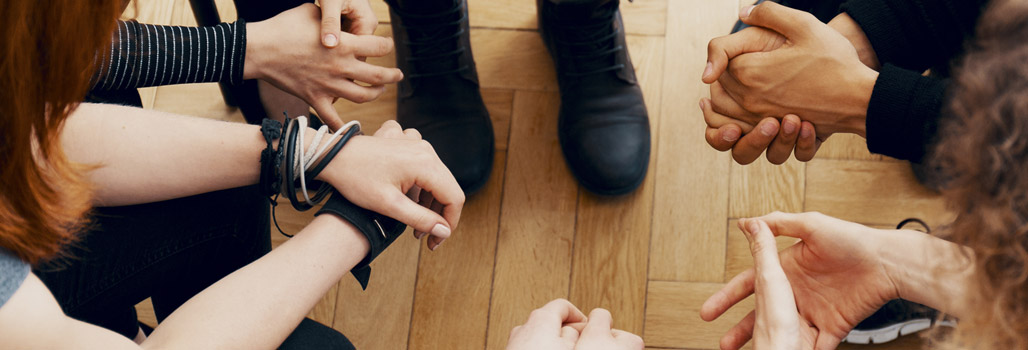Drug and alcohol dependence are challenging to address when they impact you or someone you love. But addiction is a treatable disease and by using proven and professional rehab interventions, long-term recovery can be embraced.
This Guide will explain holistic approaches to addiction rehabilitation and how you or a loved one can begin and maintain addiction recovery.
What is Addiction Rehab (Rehabilitation)?
Addiction ‘rehabilitation’ is a holistic term that utilizes both the therapeutic and medical interventions to treat dependencies on both illegal and legal substance addictions.
Addiction rehab has better chances of long term success when it is customized to the individual needs of the client and incorporates medically-managed detoxification, residential or outpatient programs, and relapse prevention techniques such as aftercare.

Facts & Statistics about Addiction in Santa Barbara
Prevalence of Substance Use Disorder, by Drug Type
(IN THOUSANDS)
- 2,7578.5%Any Substance
- 2,0886.4%Alcohol
- 1,0683.3%Ilicit Drugs
- 2060.6%Pain Medication
Drug- and Alcohol-Induced Deaths by Age Group, California, 2016
- Alcohol-Induced
- Drug-Induced
- 18 to 250.5
- 9.6
- 26 to 354.3
- 13.9
- 36 to 6424.2
- 22.9
- 65+23.7
- 9.4
Drug Use, by Selected Type and Age Group California, 2015 to 2016
- 12 to 17
- 18 to 25
- 26+
- Marijuana*13.2%
- 34.0%
- 13.5%
- Misuse of Pain Medications3.5%
- 8.0%
- 4.3%
- Cocaine0.8%
- 7.2%
- 1.8%
- Heroin0%
- 0.4%
- 0.2%
What are the treatment options available in Santa Barbara?
By integrating treatments, the hidden causes of substance use disorders can be tackled and healed. Symptoms of substance misuse should be treated but learning new life skills empowers you to face the problems that lead to your addiction to drugs or alcohol.

Private Residential Programs
Residential addiction treatment programs enable you to stay on the same property that you are receiving treatments in. Its major benefit is that you will receive holistic addiction treatment and support all through the day. There is significant value in removing yourself from the home environment and becoming fully immersed in the treatment program, because you are no longer vulnerable to the triggering environments that may have caused you to abuse drugs.
Completing your treatment program and avoiding relapse is a great deal easier when you remain in a protective and controlled environment. If you struggle with an intense substance dependency, or suffer from a dual diagnosis or co-occurring disorder, a residential addiction treatment program is advised.
Addiction recovery is achievable if you enroll in a residential treatment program, but if you expect to maintain sobriety you are going to need to overcome the difficulties that come with the first few months of recovery. When you have finished your residential addiction treatment program you must become more independent and set goals for your new life.
Do You Need Help?
Our addiction advisers are here to help you.

Sober Living Programs
You can learn the skills required to live substance-free by engaging in a sober living program, which will guide you through the transitional period. This can be achieved by:
- A house manager to check in with you daily
- Develop boundaries for positive behaviors in recovery
- Friendship, companionship and support from other individuals who are there for the same reasons as you.
Outpatient Programs
Outpatient programs are easier to adjust to as you can maintain your work and family commitments and still receive treatments, by attending the rehab facility at your own pace.
Outpatient programs usually provide:
- Education on drug or alcohol dependence
- Therapy and psychological interventions involving group and individualized therapy – Outpatient treatment programs should last anywhere from 3-4 months to a year, depending on your needs.
Detox Only Programs
Most clients require a medical detox to commence substance rehabilitation, because it deals with physical dependence on substances by cleansing it from your body. As your body stabilizes without substances in your system, you could experience withdrawal symptoms.
This marks the start of the rehabilitation process, and the next steps are to identify and address the underlying reasons for your addiction, so that the pattern does not repeat. Many drugs result in symptoms of withdrawal and cravings for some time after they have been eliminated from your system. You can limit the chances of relapse by building coping skills to apply to your new life.
Paying for Private Treatment
Private rehab can be settled self-funded or claimed through your healthcare policy. Most insurance providers will contribute to some of the costs associated with drug and alcohol rehab, including a medically-supervised detox, rehab therapy and medication, as well as aftercare support. The amount you can claim will be determined by your policy rules and your provider.
Before you enroll in a program, you should always check how much cover you have. Our Verify Your Insurance page can help you find out the amount of cover you can claim for.
If you don’t claim from private health insurance, the financial cost of rehab will need to be covered directly. It may be possible to negotiate a payment plan if you cannot afford to pay the full amount straight away.
State Funded Programs
If you are caught in the cycle of substance use disorder and do not have the resources to fund private treatment, you can opt for a state-funded addiction treatment program.
Using stipends from state, federal and Medicaid budgets, state-funded programs remove hurdles to rehab by providing:
- Medically-assisted detox programs
- Addiction counseling and extended care
If you would like to enroll in a state-funded rehabilitation program you will need to give proof that you reside in a low income household or do not have a private healthcare policy:

- Proof that shows you are a resident of the US
- Proof of income
- Proof of address
- Medical details about your substance misuse
You can learn more about the application process here: https://www.grants.gov/
This booklet contains contact details for your state agency.
The following state-funded addiction rehab programs are available in Santa Barbara:
Council on Alcoholism and Drug Abuse Project Recovery
133 East Haley Street, Santa Barbara, CA 93102
805-564-6057
www.cadasb.orgCouncil on Alcoholism and Drug Abuse Daniel Bryant Yth and Fam Ctr Adol Trt
1111 Garden Street, Santa Barbara, CA 93101
805-730-7575
www.cadasb.orgCouncil on Alcoholism and Drug Abuse Adult Residential Treatment Services
1020 Placido Avenue, Santa Barbara, CA 93101
805-963-1836
www.cadasb.org
Maintaining Addiction Recovery in Santa Barbara
You may find some initial difficulties in the early stages of recovery. The rehab environment was controlled and safe, and you were given professional support. When you depart rehab there will be some new challenges that you will have to learn to cope with. In our experience, clients with intense dependencies and those who do not develop the necessary support structure find long term recovery more difficult when they leave rehab. If you don’t have aftercare support or guidance in the initial stages of recovery, relapse can occur.
The following AA/NA meetings are available in Santa Barbara:
AA - All Star Beginners Group
Open, Discussion and Beginners:
5018 Calle Real, Santa Barbara, CA, 93101
Thursday: 8:00 pm – 9:00 pm
https://alcoholicsanonymous.com/Just For Tuesday
In-Person and Open: Unity Church, 227 E. Arrellaga St, Santa Barbara 93101
Tuesday: 6:45 AM
https://sites.google.com/view/nasantabarbara/home?authuser=2/Participation
In-Person and Open: Trinity Lutheran Church, 909 N La Cumbre Rd, Santa Barbara 93110
Thursday: 8:00 PM
https://sites.google.com/view/nasantabarbara/home?authuser=2/
Aftercare & Alumni Programs
An aftercare program continues to provide recovery support when you return to your home environment. By participating in aftercare support, you can reduce the risk of relapse which impacts up to 60% of individuals who have recently completed treatment. It is an essential service provided by most treatment centres.
Once you are near completion of your rehab program you must consider the counseling and therapies most beneficial to long-term sobriety and an aftercare plan will be developed to support you. Individuals who finish their drug or alcohol treatment programs will have access to an alumni community program such as ours, which gives you the opportunity to engage with peers and staff.
You will have access to mentorship and guidance from other members in recovery, and also participate other Alumni events. We encourage you to consider helping other individuals within your network if you feel able to.
Support Groups (Fellowship Meetings)
With the help of support group meetings you will enable a support structure that is great for your long-term sobriety. Addiction support groups like AA (Alcoholics Anonymous) and NA (Narcotics Anonymous) provide regular support with the help of the 12-step model and local weekly meetings.
Attending support group meetings enables you to connect with other people and provide insights into your own experiences. Many individuals in recovery attend local meetings to support them in the early and later stages of addiction recovery. Support groups provide them with the necessary tools tools to stay away from substances, allowing them to take responsibility for their own

Support for Families & Children Affected by Addiction
Some individuals in an addicted household are affected more than other individuals. It’s not just the person with the addiction who is hurt, the other members of the family need help too.
Taking part in a family support group can help you to cope better, as well as empower you in providing greater support to those struggling with dependency.
Your family members will benefit from support groups like:
- Parents of Addicted Loved Ones
- SMART Recovery Family & Friends
- NAMI Family Support Groups
- Al-Anon
- Families Anonymous
- Alateen
- Nar-Anon










